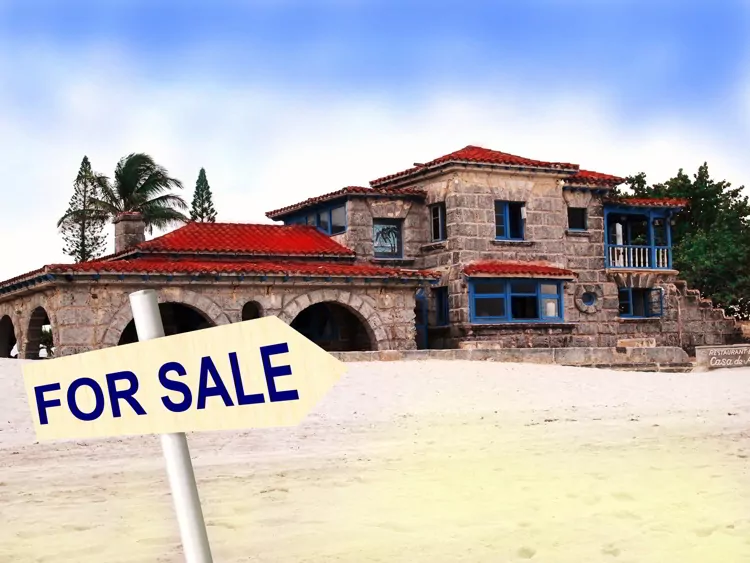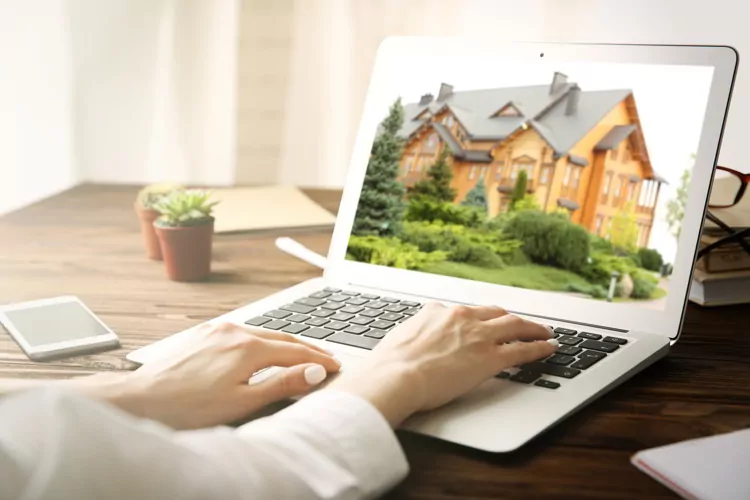Before you roll your eyes and yawn, I fully understand that an article about transaction costs is not enticing. However, if you want to buy property overseas, you need to understand the associated costs before you fall in love with the perfect place in a foreign country.
Many people looking to buy foreign real estate get swept up in the dream of owning property overseas—a beachfront retirement, a mountain escape rental property, a European second home. But their musings rarely extend beyond asking, “How much is the purchase price?”
While the purchase price is one of the most important factors in this equation, the value of your financial commitment depends upon a myriad of other expenses that can vary tremendously from country to country.
Without further ado, drumroll please… here’s a basic breakdown of the transaction costs you may encounter and what you can expect to pay when you purchase property overseas.
Preliminary Costs
Even before you make an official purchase offer, your expenses start accumulating. Attorney’s fees, title search, document preparation, and more all come with a price. If you are considering pre-construction property, you may encounter additional expenses related to the specific project.
Sometimes it’s more advantageous to set up a corporate structure to accept title for your property. This process should be completed before the transaction is closed, but it will cost additional money, separate from the purchase process.
In some countries, like Mexico, you may need to set up a trust to pay the purchase price and maintain the title. This cost can be substantial… around US$2,000, so it’s important to understand whether you have the responsibility to pay this cost.
Attorney’s Fees

Some locations establish attorney’s fees based upon a percentage of the property’s sale price. Other places allow attorneys to set their own fees, which are usually stated as a flat rate, while others establish a fee rate based upon local or national standards. Attorney’s fees may or may not include services such as document preparation, title search and review, power of attorney responsibilities, and more.
Closing Costs
At closing time, usually both buyer and seller pay costs, taxes, and various fees to finalize the deal. Some of these amounts are paid by the seller, some are paid by the buyer, and some are divided. Your chosen location may allow you to negotiate a different split of these expenses, but the allocation of closing costs is usually standardized.
Here’s a partial list of expenses paid at closing and the party normally responsible:
- Notary costs are normally borne by the buyer, as it’s mostly to the buyer’s benefit. The notary reviews the documents to ensure they are legal and accurate.
- Transfer taxes are often split by the parties.
- Capital gains tax is paid by the seller unless negotiated otherwise.
- Advance property taxes are paid by the buyer.
- Pre-paid municipal taxes or contributions to municipal improvements are paid by the buyer.
Some locations have special rules about closing costs worth mentioning. Different countries may require extra steps and costs, while certain circumstances may qualify for exemptions of some expenses.
For example:
- Brazil has an additional tax on beachfront property.
- Mexico requires buyers to establish a Bank Trust (which charges annual fees ranging from US$400 to US$550) to hold property located in “Restricted Zones,” defined as property within 100 km from any border and 50 km from any coastline.
- Colombia assesses a contribution to municipal improvements, which varies depending on the property’s location and social strata.
- In Ecuador you may qualify for a special tax exemption if you are 65 or older.
- In Panama, various exemptions apply based upon the value of the property.
- The Dominican Republic may waive transfer taxes if you buy new construction.
Post-Closing/Ongoing Expenses To Consider
Once you become a property owner, you may incur additional expenses on an ongoing basis. These costs may include:
- Annual property taxes. Although you may qualify for an exemption in the Dominican Republic and other locations.
- Maintenance fees. May be nonexistent or could cost thousands of dollars every year.
- Homeowners Association fees. Can range from zero to several hundreds of dollars per month.
- Corporate taxes. This and other ongoing expenses keep your corporation compliant if you took title of the property as a corporate entity. Again, these can cost you hundreds of dollars every year.
- Rental income tax. Most countries tax your rental income, so the more you rent your property, the more tax you are liable to pay. This tax can range from 15% of gross rental income up to 35% or more.
These regular, ongoing costs can add up over time and should be figured into your overall purchase decision before closing.
Costs Paid When You Sell Your Property

When you part with your overseas property, you will incur certain expenses usually assigned to the seller. These costs may include:
- Document preparation costs.
- Inheritance tax—this can range between 1% to 8%, or more, of the sale price.
- Real estate agent fee if you engage an agent or broker.
- Donation tax if you donate the property instead of selling it.
- Capital gains tax, which varies tremendously from place to place, but can range from 10% to 28%.
Here are some special points to consider, which vary by country:
- Portugal does not assess inheritance tax on real estate but charges one of the highest capital gains taxes, at 28%.
- Panama requires an upfront payment of 3% of your anticipated capital gains tax when you buy a property. Upon sale, a 10% tax is calculated, you can apply for credit if the amount you previously paid is greater than the amount you owe at the sale. The credit process can take years, so be prepared to wait.
- Mexican capital gains tax can range from 10% to 35%, depending on financial indices, special deductions, as well as the purchase date and price versus the sale price.
- The Dominican Republic uses a sliding scale for capital gains taxes, which ranges from zero to 25% for individuals, and a flat rate of 27% for corporations. This calculation is also adjusted for inflation, unlike most other countries.
- In Colombia, you owe capital gains tax of 10% if you own the property for two or more years. If you don’t reach the two-year threshold, you are responsible to pay tax at the net income tax rate, which will be higher depending on your other assets.
Special Warnings And Tips
When purchasing a foreign property you may agree to pay a certain price, but the seller may want a lower price on the official closing documents. This is an effort to reduce their capital gains tax. They may also say it’s a benefit to you because it will keep your property taxes down.
My advice? Don’t do it for two reasons. First, it is usually illegal. Secondly, when you sell the property your buyer may not agree to participate in this scheme and you will be stuck with artificially inflated capital gains when you have to cover the prior owner’s tax burden that he avoided.
Now for some good news.
In many countries, if you pay your property tax in full by a certain date, you can receive a discount. My property tax savings was 10% of the total owed. As my taxes were less than US$1,000, I saved less than US$100, but every little bit helps!
Finally, some countries will allow you to make payments online as opposed to making a personal appearance at the tax collector’s office. Online payments may save you some money as well.
Are You Still With Me?
If you are anything like me, by this point either your head is spinning or your eyes have glazed over with all this dry, technical information. These details can be boring but they are too important to ignore.
One of the best ways I’ve found to absorb and truly understand technical facts is to speak directly with people in the know. One of the easiest ways to do that is to attend one of our Retire Overseas Conferences, where we will have experts from all of the places I mentioned, plus a few more, waiting to talk to you.
You will be able to question the experts who have all of the most up-to-date, relevant information and who can explain this topic better than I can.
I hope to see you there!
Wendy Howarter

